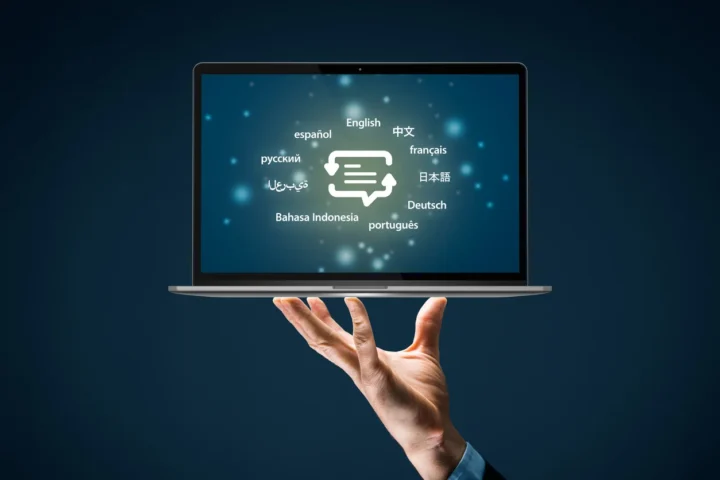Expanding internationally is a strategic step for companies looking to increase their reach and tap into new markets. However, this expansion cannot be achieved without considering key aspects such as ethics, artificial intelligence (AI), and translation. These elements are not merely facilitators but essential requirements for ensuring success and sustainability on a global scale. This article explores why and how these aspects directly influence companies seeking to expand internationally.
Importance of Ethics for International Companies
Respect for Local Cultures and Norms
For any company, entering a foreign market without respecting local cultural and ethical norms is a major strategic error. Each country has its own traditions, customs, and sensitivities that must be respected. A company that neglects these aspects risks not only facing local resistance but also tarnishing its brand image. For example, a poorly adapted marketing campaign can be perceived as offensive, leading to a negative public reaction.
Transparency and Trust
Transparency in operations and communications is crucial for establishing and maintaining trust with local consumers and partners. Companies need to be open about their business practices, manufacturing methods, and data management policies. Increased transparency enhances the company’s credibility and facilitates acceptance in the new market.
Corporate Social Responsibility (CSR)
Corporate Social Responsibility (CSR) plays an essential role in the public perception and international reputation of a company. Companies must demonstrate that they care not only about their profits but also about the social and environmental impacts of their activities. Initiatives in sustainability, human rights, and support for local communities can significantly improve a company’s image and foster sustainable growth.
Role of AI in International Development
Optimization of Operations
AI enables companies to optimize their operations on a global scale. It can automate complex processes such as supply chain management, logistics, and market analysis. This optimization helps reduce costs, improve efficiency, and respond more quickly to market changes. For instance, AI can predict demand fluctuations, allowing for more precise inventory management.
Personalization of Services
Personalizing services through AI is a major asset for meeting the specific needs of local consumers. By analyzing user data, companies can offer personalized experiences that increase customer satisfaction and loyalty. E-commerce platforms, for example, can use AI to recommend products based on local preferences, thereby boosting sales.
Predictive Analysis
AI also offers valuable predictive analysis capabilities for international companies. By using predictive models, businesses can anticipate market trends, identify new opportunities, and adjust their strategies accordingly. For example, a clothing company can use AI to forecast seasonal fashion trends, enabling them to launch collections that cater to local tastes at the right time.
Importance of Translation and Multilingual Communication
Machine Translation and Human Revision
AI-based machine translation tools, such as SYSTRAN, facilitate multilingual communication and enable quick translation of documents and communications. However, to ensure accuracy and cultural relevance, human revision is often necessary. Linguistic subtleties and cultural contexts can be complex, and a literal translation may sometimes lead to misunderstandings or inappropriate messages.
Localization
Localization goes beyond mere translation. It involves adapting content to the local cultural context, taking into account idioms, cultural references, and local preferences. A well-localized marketing campaign can significantly improve engagement and acceptance by the target audience. For example, a food company must adapt its recipes and packaging to local tastes and expectations to succeed in a new market.
Real-Time Interpretation
AI technologies also enable real-time interpretation, facilitating interactions in multilingual environments. This is particularly useful during international meetings, conferences, and business negotiations. Tools like simultaneous translation systems integrated into video conferencing platforms allow for smooth communication, reducing language barriers and promoting effective collaboration.
Combining Ethics, AI, and Translation for International Success
Integrated Human-AI Approach
To maximize the benefits of AI while respecting ethical and cultural standards, an integrated approach is necessary. AI can automate and optimize many processes, but human expertise is essential to ensure quality and relevance. For example, in translation, AI can provide a first draft, but human translators are needed to refine the text and capture cultural nuances.
Training and Awareness
It is crucial to train and raise awareness among teams about the ethical and cultural issues of international development. Employees must be informed about cultural differences, ethical standards, and local regulations. This includes training on the responsible use of AI and the management of personal data. A well-informed and sensitized team is better equipped to navigate the complexities of the international market.
Governance and Regulation
Implementing clear policies and governance mechanisms for the use of AI and data management is essential. Companies must comply with local and international laws, such as the GDPR in Europe. This includes monitoring and controlling the use of AI to ensure it is ethical and transparent, as well as establishing procedures to protect user data.
Conclusion
Ethics, AI, and translation share similarities in their foundational roles of facilitating successful international expansion. All three elements are critical in fostering trust and communication across diverse markets:
- Enhancing Communication and Understanding
- Cultural Sensitivity
- Building Trust
- Compliance and Security
By aligning these elements, businesses can effectively navigate the complexities of international markets, fostering stronger connections and sustainable growth.






